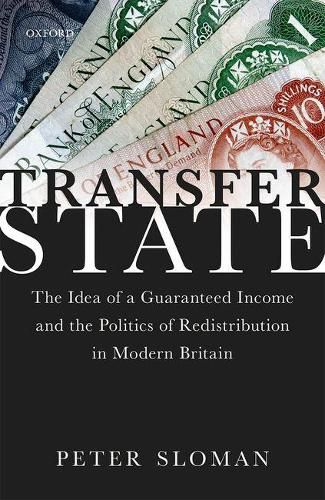Readings Newsletter
Become a Readings Member to make your shopping experience even easier.
Sign in or sign up for free!
You’re not far away from qualifying for FREE standard shipping within Australia
You’ve qualified for FREE standard shipping within Australia
The cart is loading…






The idea of a guaranteed minimum income has been central to British social policy debates for more than a century. Since the First World War, a variety of market economists, radical activists, and social reformers have emphasized the possibility of tackling poverty through direct cash transfers between the state and its citizens. As manufacturing employment has declined and wage inequality has grown since the 1970s, cash benefits and tax credits have become an important source of income for millions of working-age households, including many low-paid workers with children. The nature and purpose of these transfer payments, however, remain highly contested. Conservative and New Labour governments have used in-work benefits and conditionality requirements to ‘activate’ the unemployed and reinforce the incentives to take low-paid work - an approach which has reached its apogee in Universal Credit. By contrast, a growing number of campaigners have argued that the challenge of providing economic security in an age of automation would be better met by paying a Universal Basic Income to all citizens. Transfer State provides the first detailed history of guaranteed income proposals in modern Britain, which brings together intellectual history and archival research to show how the pursuit of an integrated tax and benefit system has shaped UK public policy since 1918. The result is a major new analysis of the role of cash transfers in the British welfare state which sets Universal Credit in a historical perspective and examines the cultural and political barriers to a Universal Basic Income.
$9.00 standard shipping within Australia
FREE standard shipping within Australia for orders over $100.00
Express & International shipping calculated at checkout
The idea of a guaranteed minimum income has been central to British social policy debates for more than a century. Since the First World War, a variety of market economists, radical activists, and social reformers have emphasized the possibility of tackling poverty through direct cash transfers between the state and its citizens. As manufacturing employment has declined and wage inequality has grown since the 1970s, cash benefits and tax credits have become an important source of income for millions of working-age households, including many low-paid workers with children. The nature and purpose of these transfer payments, however, remain highly contested. Conservative and New Labour governments have used in-work benefits and conditionality requirements to ‘activate’ the unemployed and reinforce the incentives to take low-paid work - an approach which has reached its apogee in Universal Credit. By contrast, a growing number of campaigners have argued that the challenge of providing economic security in an age of automation would be better met by paying a Universal Basic Income to all citizens. Transfer State provides the first detailed history of guaranteed income proposals in modern Britain, which brings together intellectual history and archival research to show how the pursuit of an integrated tax and benefit system has shaped UK public policy since 1918. The result is a major new analysis of the role of cash transfers in the British welfare state which sets Universal Credit in a historical perspective and examines the cultural and political barriers to a Universal Basic Income.